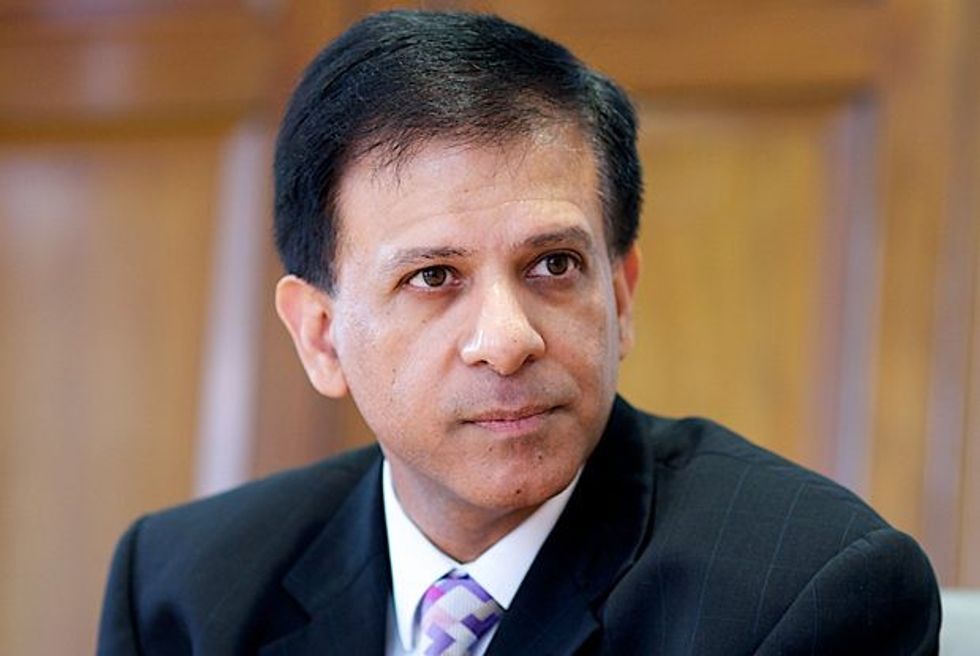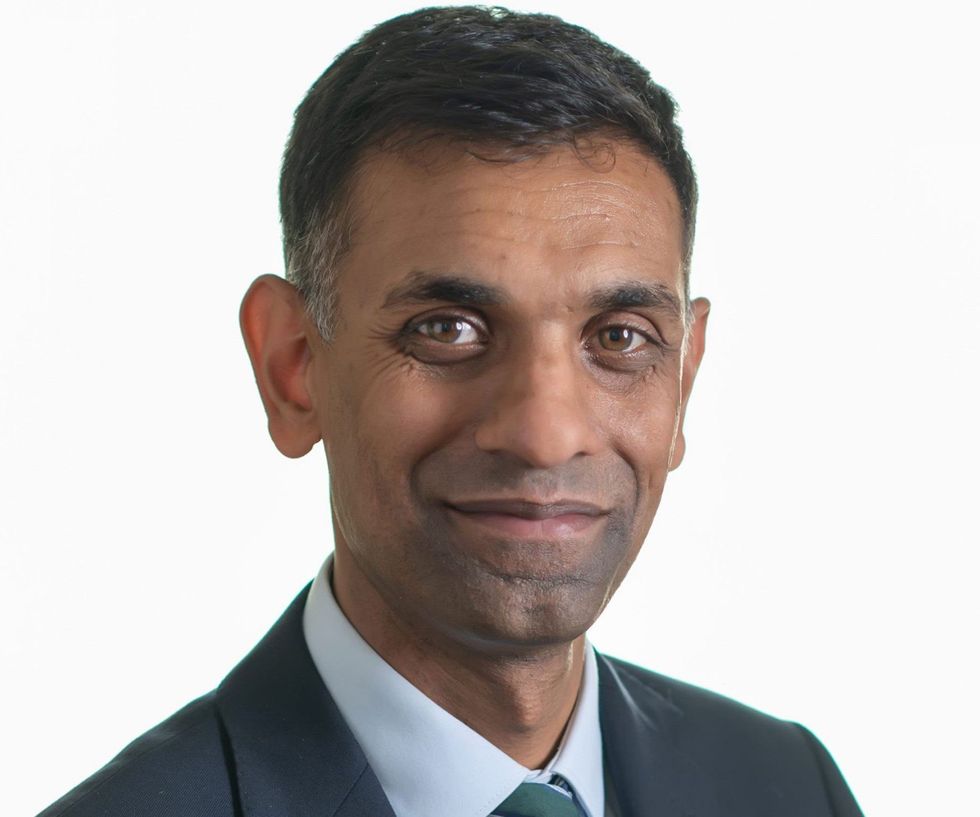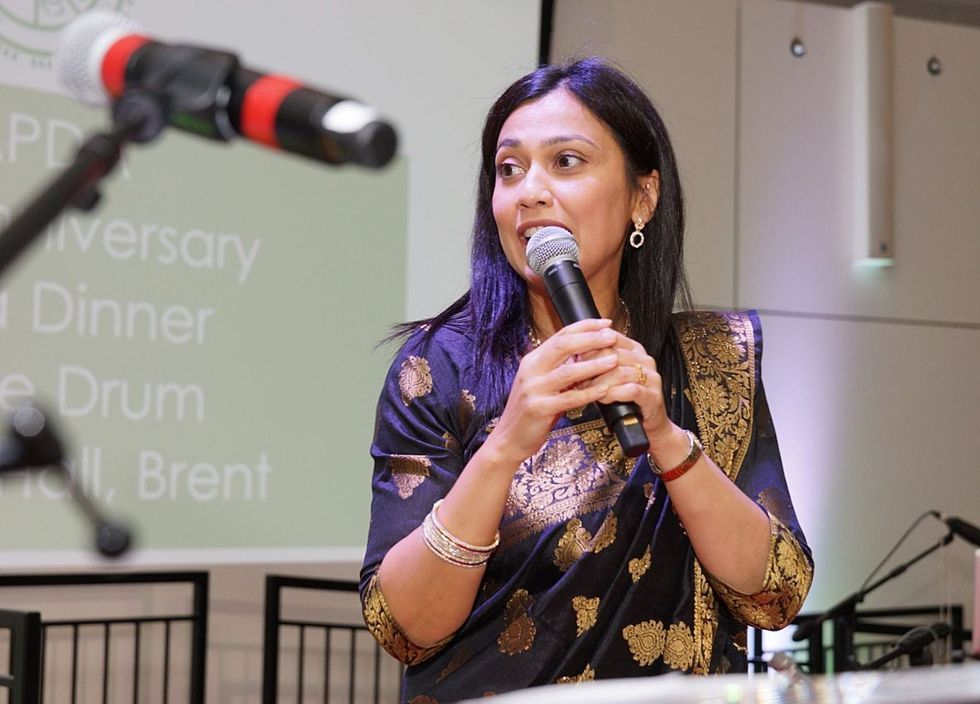PEOPLE from an ethnic minority with learning disabilities have a life expectancy that is almost half that of their white counterparts, a survey has shown, sparking calls for a “quantum change” in care provided to the group.
Research by the NHS Race and Health Observatory, published on Tuesday (25), found that the average age of death for people with a learning disability and who are from an ethnic minority is 34 years, in contrast to 62 years for white people with learning disabilities.
Dr Chaand Nagpaul, former chair of the British Medical Association (BMA) council, told Eastern Eye there needs to be an “urgent” government investigation into the findings of the report.
“It has been long known that people with learning disabilities face and suffer disadvantage when it comes to accessing health care and also having health promotional and prevention support,” said Nagpaul, now a board member at the NHS Race and Health Observatory.
“However, what this study has highlighted is how patients with learning disability from black and ethnic minority backgrounds have a scale of disadvantage in terms of life expectancy at a stark and shocking level compared to white people with learning disabilities.
“This is a statistic that demands proper investigation and understanding as to the root causes of why there should be such race disparities in a group of people who are already suffering disadvantage.”

Researchers examined two decades of studies into discriminatory barriers preventing equitable healthcare treatment. Supported by NHS England, the five-part report contains data, personal interviews and analyses by the University of Central Lancashire, in collaboration with Manchester Metropolitan University, Learning Disability England and the Race Equality Foundation.
The review captures the lack of reasonable adjustments and failure to recognise individual needs. Language barriers, cultural and religious insensitivity, a lack of information in easy to read format and a lack of information during transitional care in hospital and home were some of the obstacles identified.
Dr Habib Naqvi, the CEO of NHS Race and Health Observatory, said, “The disparities identified by this review are unjustifiable and avoidable. For too long, people with a learning disability from an ethnic minority background have received inequitable care and poor outcomes.
“The observatory will work with all relevant organisations to help drive further, faster progress in ensuring people with a learning disability from ethnic minority backgrounds receive equitable, high-quality health and social care provision.”

Among the report’s recommendations are for healthcare providers to tailored support and recording accurate ethnicity data.
“Lack of cultural sensitivity is a constant in the day-to-day support provided to people with learning disabilities,” CEO at The Asian People's Disability Alliance (APDA), Zeenat Jeewa told Eastern Eye.
“There is a general lack of understanding of disabilities because the term learning disability reflects a big spectrum of different people's needs, but people get grouped together.

“The number of healthcare professionals who actually speak different languages is very limited. Translation services are a hit and miss - it all depends on funding availability.
“Just look at one group, Indians. You have so many different languages, religions, cultural sensitives. In the UK, these people are not adequately supported because there isn’t that diversity and understanding of their needs.
“We need people to be retrained to understand the needs of ethnic minorities with learning disabilities. We need more representation in healthcare professional roles, especially higher positions, because among those that are the decision makers, you'll find less and less representation.”
Jabeer Butt, the CEO of Race Equality Foundation, told Eastern Eye ethnic minorities also had a responsibility to engage with healthcare services.

The NHS Health and Race Observatory report found that 67 per cent of Asians with a learning disability resided in their family home. This figure rose to 84 per cent for Pakistanis and Bangladeshis.
Among the white British community, only 23 per cent lived on their own or in their family home.
Butt said, “We need to improve our understanding in the community themselves. We need all family members and communities as a whole to understand there is support available for black, Asian and minority people with a learning disability. And that support can be really productive in helping them achieve their life goals.
“We also need to ensure voluntary organisations that work with people with a learning disability are open and accessible to all, so they can do the advocacy work in order for black, Asian and minority ethnic people with a learning disability to benefit from the support.”
Nagpaul said as a practising GP he has to meet NHS standards regarding the care of patients with learning disabilities, which includes carrying out annual health checks.
However, he criticised the fact that there are no policies that recognises that not all patients with a learning disability have the same needs.
“There is no system around us that addresses the fact that learning disability patients are not all the same, and the support and care they need does vary - not only based on their own ethnicity, but also those who care for them. That is not part of the standards that have been set in the NHS, certainly not in general practice.”
Researchers analysed relevant national policy documents from 2001 onwards to see relevance to people with a learning disability from ethnic minority backgrounds.
It was found that references to people of ethnic minority backgrounds were rare in legislation relating to learning disability.
Within four pieces of legislation scrutinised (Carers and Disabled Children Act 2000; Children and Families Act 2014; Care Act 2014 and the Down Syndrome Act 2022) – none contained information or specific policy direction in relation to people with a learning disability from any ethnic minority group.
Nagpaul said, “There is no doubt the NHS must do better and there needs to be a quantum change in the way in which care is provided. There needs to be a culturally competent, proactive care system, understanding the specific needs of people and communities and carers of ethnic minority patients.
“I have been disappointed by the lack of openness at a central government level about the inequalities that affect many ethnic minorities in terms of access to health and the health outcomes and their experience," he added.
“There is very little written in [ the system] to ensuring that culturally competent and sensitive care is considered a must and not an optional extra.
“One cannot just accept these statistics which go against the very fabric of a health service which should have people having equitable outcomes.”
Tom Cahill, national learning disability and autism director, NHS England, conceded ethnic minorities had suffered from “longstanding health inequalities”.
“The NHS locally and nationally is working extremely hard to improve the care and support available to people with a learning disability, but it is crucial nobody is left behind by these improvements, which is why we commissioned this important piece of work," he said.
“This report is a useful reminder of the need to take specific action to address longstanding health inequalities experienced by people from ethnic minority backgrounds, but most important, it provides concrete recommendations which can be used to improve care across the country.
“The NHS is already taking actions to address some of the issues this report highlights, including introducing a new requirement in April for GPs to record the ethnicity of people with a learning disability as part of the learning disability annual health check.”




